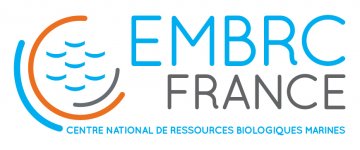Diversity of free-living heterotrophic flagellates across the eukaryotic tree
Denis Tikhonenkov is passionate about the study of heterotrophic flagellates, the simple morphology of which does generally not allow identification with a microscope.
Denis Tikhonenkov
Denis Tikhonenkov se passionne pour l'étude des flagellés hétérotrophes dont la morphologie simple ne permet généralement pas l'identification au microscope, et qui passent ainsi facilement inaperçus. De par leur position évolutive, ces flagellés se révèlent pourtant souvent des organismes-clés pour comprendre le phénotype ancestral des principales lignées d'eucaryotes et l'évolution des grands modes trophiques chez les protistes. Spécialiste de l'isolement de ces flagellés à partir de cultures mixtes, Denis collabore de longue date avec l'équipe de Patrick Keeling pour les caractériser génétiquement, identifier leur position dans l'arbre du vivant, et en étudier les implications évolutives. Dans ce séminaire, Denis présentera un tour d'horizon, richement illustré à l'aide de vidéos, des différents types de flagellés hétérotrophes que l'on peut trouver dans divers types d'échantillons (aussi bien marins que terrestres, et du plancton aux sédiments).
Denis Tikhonenkov is passionate about the study of heterotrophic flagellates, the simple morphology of which does generally not allow identification with a microscope. These flagellates are therefore easily overlooked, even though their evolutionary position often makes them key organisms to understand the ancestral phenotype of the main lineages of eukaryotes, and the evolution of the main trophic modes in protists. Specialist in the isolation of such flagellates from mixed cultures, Denis has been collaborating for many years with Patrick Keeling's team to characterise them genetically, identify their position in the tree of life, and highlight the evolutionary implications of their findings. In this seminar, Denis will present an overview (illustrated with videos) of the various types of heterotrophic flagellates that can typically be found in all sorts of samples (marine as well as terrestrial, and from plankton to sediments).







